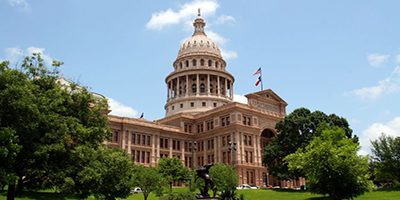Texas’ 85th Regular Legislative Session has come and gone, and 1,211 bills have been signed into law – slightly below previous sessions’ average number of 1,300 – 1,400 bills. This below average number of effective bills is indicative of the challenges of the 85th Regular Session. Many bills died as they failed to reach key deadlines in the legislative process. Of course, not all bills fell victim to legislative gridlock; below is a list of some the major Business and Commerce bills passed during the regular session.
- Encourage the export of Texas agricultural products or products manufactured in rural Texas; or
- An economic development program established through an agreement with a federal agency, foreign governmental entity, public university, or state governmental entity to encourage rural economic development.
- requiring grant recipients to provide matching funds of at least 25 percent of the amount of the grant;
- limiting the term of a loan to 20 years;
- requiring monthly payments of principal and interest beginning within 90 days of the loan;
- limiting the cumulative amount of loans and grants to any person to $1 million;
- requiring the department to report on the status of the fund to the governor and legislature before each legislative session.
HB 89 by Phil King (R-Weatherford) and Brandon Creighton (R-Conroe) prohibits governmental entities from entering into contracts for goods or services with companies that boycott Israel.
SB 1289 by Brandon Creighton (R-Conroe) and Chris Paddie (R-Marshall) requires governmental entities to use iron and steel produced in the United States in the construction projects unless the preference would increase the total cost of the project by more than 20 percent or complying is inconsistent with the public interest unless U.S. iron or steel products are not produced in sufficient quantities; reasonably available; or of a satisfactory quality.
SB 1517 by Kelly Hancock (R-North Richland Hills) and Rene Oliveira (D-Brownsville) adds to the definition of “person” under the Business Organizations Code a series of a domestic limited liability company (LLC) or a foreign entity; and establishes procedures for service of process on series of limited liability companies or foreign entities. It also creates a penalty for a LLC to refuse a member of that LLC to inspect the business records of the LLC. Lastly, SB 1517 clarifies that a partnership is bound by a partnership agreement (general or limited) is bound by the partnership agreement regardless of whether the partnership has signed or expressly adopted the agreement.
HB 1463 by John Smithee (R-Amarillo) and Kel Seliger (R-Amarillo) requires a claimant to provide at least 60-days notice to a business of intent to file a claim under the Americans With Disabilities Act (ADA). The notice must state:
- the name of the individual asserting the claim;
- each alleged violation; and
- the date, place and manner in which the claimant discovered the alleged violation.


